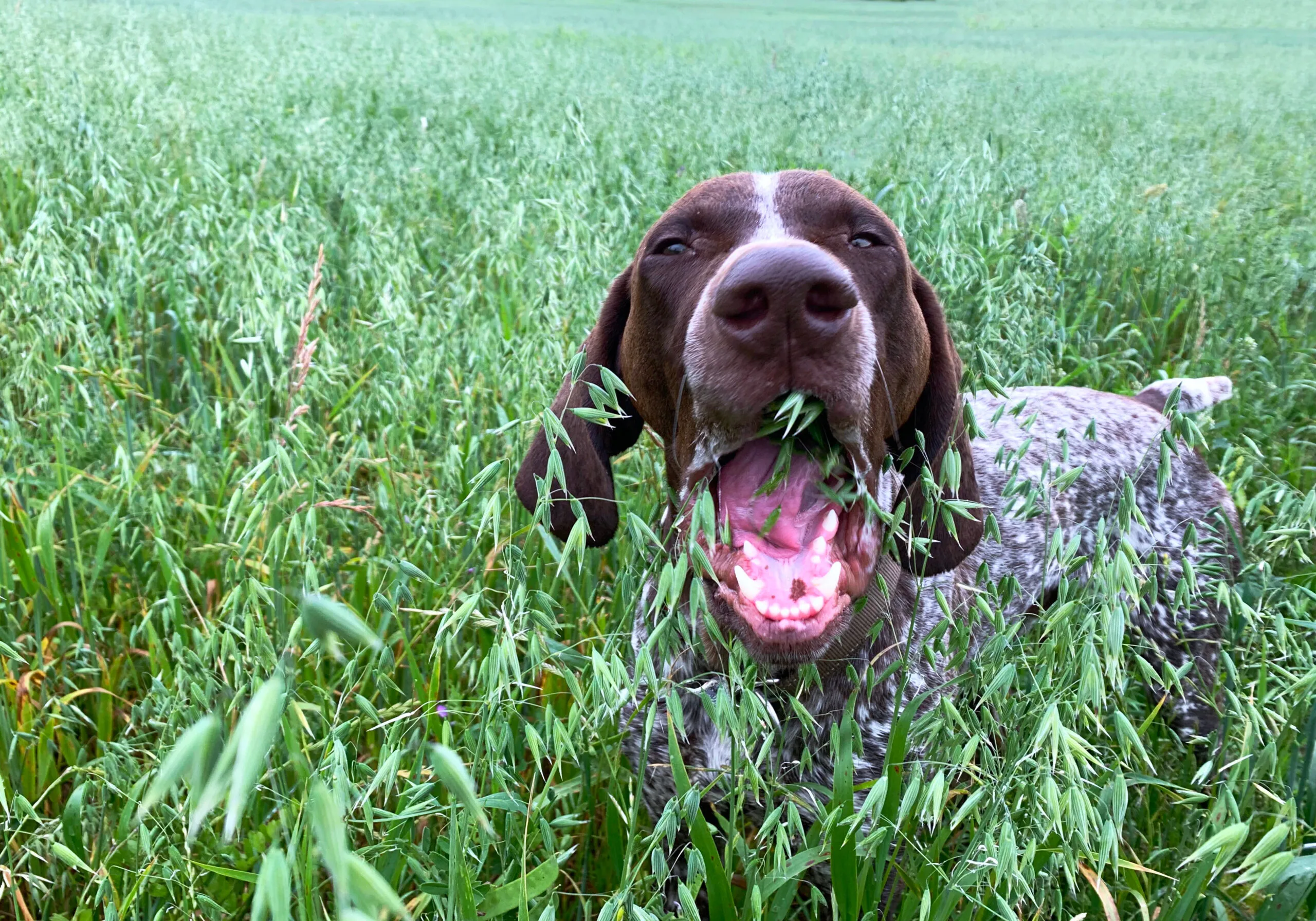Many dog owners have observed their pets occasionally munching on grass, leading to questions and concerns about this behavior. While it may seem odd, eating grass is relatively common among dogs. Understanding the reasons behind this behavior can help ease your worries and ensure your furry friend stays healthy. Here are some of the main reasons why dogs eat grass:
1. Natural Instincts
Dogs are descendants of wild canines that often consumed plant matter as part of their diet. In the wild, dogs would eat the stomach contents of their prey, which often included grass and other vegetation. This instinctual behavior can carry over to domestic dogs, leading them to nibble on grass.
2. Digestive Aid
Some experts believe that dogs may eat grass to help with digestion. Grass may act as a natural laxative, aiding in the expulsion of hairballs or other indigestible materials from their system. If a dog is feeling uncomfortable or experiencing digestive issues, they may instinctively seek out grass to help relieve their symptoms.
3. Nutritional Needs
Dogs may eat grass to fulfill a nutritional deficiency. Grass contains certain nutrients, such as fiber, which can help with digestion. If a dog lacks certain vitamins or minerals in their diet, they might turn to grass as a supplement. If you notice your dog eating grass frequently, consider reviewing their diet and ensuring it is well-balanced.
4. Boredom or Anxiety
Dogs can sometimes eat grass out of boredom or anxiety. If they are not getting enough physical and mental stimulation, they may seek out grass as an outlet for their energy. Additionally, dogs may turn to grass chewing as a way to self-soothe in stressful situations. Providing adequate exercise, playtime, and mental stimulation can help reduce this behavior.
5. Taste and Texture
Dogs are curious creatures, and they may simply enjoy the taste and texture of grass. Just like humans might snack on crunchy vegetables, dogs may find grass appealing. The texture of grass can provide a satisfying chewing experience for them.
6. Nausea Relief
Some dogs will eat grass when they feel nauseous or are about to vomit. The act of eating grass can induce vomiting, which may help them feel better afterward. If your dog regularly eats grass and subsequently vomits, it could be a sign of an underlying gastrointestinal issue. In such cases, consulting a veterinarian is advisable.
7. Attention-Seeking Behavior
In some instances, dogs may eat grass to get attention from their owners. If you react strongly when you see your dog munching on grass—whether positively or negatively—they might continue the behavior to gain your attention. Reinforcing positive behavior and redirecting your dog’s attention can help manage this.
Conclusion
While eating grass is generally considered a normal behavior for dogs, it’s essential to monitor the frequency and context of this action. Most dogs will occasionally munch on grass without any issues, but if you notice excessive grass-eating accompanied by vomiting, diarrhea, or changes in appetite or behavior, it’s best to consult a veterinarian. Understanding your dog's behavior and addressing any underlying concerns can ensure their health and happiness.
Takeaway Tips
- Monitor Frequency: Keep an eye on how often your dog eats grass and any related symptoms.
- Provide Stimulation: Engage your dog in regular exercise and mental activities to reduce boredom-related grass eating.
- Review Diet: Ensure your dog’s diet is balanced and meets their nutritional needs.
- Consult Your Vet: If grass-eating becomes excessive or is accompanied by other concerning symptoms, seek veterinary advice.


